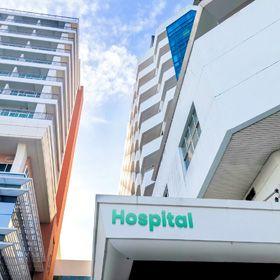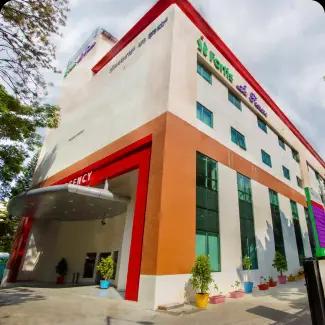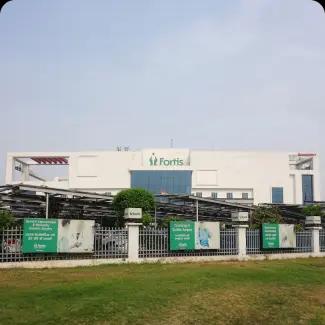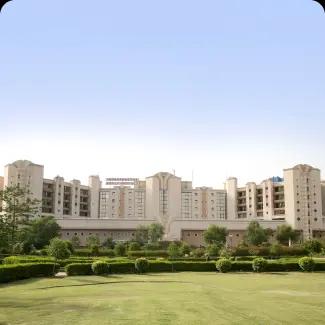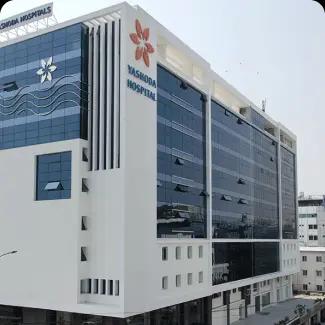
Rhinology
Rhinology is a branch of medicine focused on the diagnosis and treatment of nasal and sinus disorders. It encompasses a wide range of conditions, from nasal congestion and sinusitis to nasal polyps and allergic rhinitis. Rhinologists are specially trained in managing both medical and surgical aspects of nasal and sinus issues.
Easy Medical Visa Approvals
Travel Booking Assistance
Comprehensive Treatment Plans
Multi-Language Support
Rhinology is a branch of medicine focused on the diagnosis and treatment of nasal and sinus disorders. It encompasses a wide range of conditions, from nasal congestion and sinusitis to nasal polyps and allergic rhinitis. Rhinologists are specially trained in managing both medical and surgical aspects of nasal and sinus issues.
Symptoms
Symptoms
Types of conditions
There are five main types of Rhinology
Medications
Nasal Irrigation
Immunotherapy
Surgical Interventions
Lifestyle Modifications
Medications
Antihistamines, nasal corticosteroids, decongestants, and antibiotics may be prescribed depending on the underlying cause.
DIAGNOSIS
1. Medical History
2. Physical Examination: A thorough examination of the nose, nasal passages, and facial structures is performed to assess for signs of inflammation, obstruction, or structural abnormalities.
3. Nasal Endoscopy: Nasal endoscopy, also known as rhinoscopy, involves the insertion of a thin, flexible endoscope into the nasal passages to visualize the nasal cavity and sinus openings.
4. Imaging Studies: Imaging studies such as computed tomography (CT) scans and magnetic resonance imaging (MRI) may be ordered to further evaluate nasal and sinus anatomy, identify structural abnormalities, and assess the extent of sinus disease.
5. Allergy Testing: Allergy testing, including skin prick tests or blood tests for specific IgE antibodies, may be performed to identify allergens triggering allergic rhinitis or sinusitis.
6. Nasal Cytology: Nasal cytology involves the collection and examination of nasal secretions or nasal mucosal biopsies to assess for inflammatory cells, infectious agents, or signs of allergic inflammation.
CAUSES/RISK FACTORS
-
Allergens: Exposure to pollen, dust mites, pet dander, and other allergens can trigger allergic rhinitis.
-
Infections: Viral, bacterial, or fungal infections can lead to acute or chronic rhinosinusitis.
-
Structural Abnormalities: Deviated septum, nasal polyps, and turbinate hypertrophy can cause nasal obstruction and sinus issues.
-
Environmental Factors: Exposure to pollutants, irritants, and occupational hazards can exacerbate nasal symptoms.
-
Genetics: Family history of nasal and sinus conditions may increase susceptibility.
-
Immune System Disorders: Autoimmune diseases and immune deficiencies can lead to chronic inflammation and recurrent infections.
-
Trauma: Nasal trauma can result in fractures, septal deviation, and chronic issues.
-
Systemic Diseases: Conditions like cystic fibrosis and primary ciliary dyskinesia affect respiratory function.
-
Age: Aging leads to changes in nasal anatomy and immune function, increasing susceptibility.
-
Smoking: Tobacco smoke damages the nasal mucosa and increases the risk of sinus disorders.
PREPARING FOR SURGERY
-
Pre-operative Consultation: Discuss medical history, expectations, and surgical details with the rhinologist.
-
Diagnostic Tests: Complete any required tests such as imaging studies or allergy testing.
-
Medication Review: Review current medications and adjust as necessary, especially blood thinners.
-
Lifestyle Adjustments: Quit smoking and avoid alcohol to optimize healing.
-
Fasting: Follow fasting instructions provided by the surgeon before the procedure.
-
Transportation: Arrange for transportation home post-surgery as driving may not be allowed.
-
Follow Surgeon's Instructions: Adhere to any specific pre-operative instructions provided by the surgeon.
TREATMENT DETAILS
Types
-
Allergic Rhinitis: Involves inflammation of the nasal passages due to exposure to allergens like pollen, dust, or pet dander
-
Chronic Rhinosinusitis: Persistent inflammation of the nasal and sinus linings, lasting for at least 12 weeks, often characterized by nasal congestion, facial pain, and nasal discharge
-
Nasal Polyps: Noncancerous growths that develop in the nasal passages or sinuses, often associated with chronic inflammation and recurrent sinusitis
-
Septal Deviation: Structural abnormality of the nasal septum, the wall dividing the nasal cavity, which can lead to nasal obstruction and difficulty breathing.
-
Sinonasal Tumors: Benign or malignant growths that develop in the nasal cavity or paranasal sinuses, requiring specialized evaluation and treatment.
Technology used:
- Endoscopy: It allows for detailed examination of nasal anatomy, assessment of mucosal inflammation, and guidance during surgical procedures.
- Computed Tomography (CT) Scans: CT imaging provides detailed cross-sectional images of the nasal cavity and paranasal sinuses, allowing for precise evaluation of sinus anatomy, identification of structural abnormalities, and assessment of sinus disease severity
- Magnetic Resonance Imaging (MRI): MRI imaging is used to assess soft tissue structures, such as the nasal mucosa, turbinates, and pituitary gland, with superior contrast resolution compared to CT scans
- Nasal Airflow Measurement: Rhinomanometry and acoustic rhinometry are techniques used to measure nasal airflow and assess nasal patency objectively
- Immunotherapy: Allergy testing and allergen immunotherapy, including subcutaneous allergy shots or sublingual immunotherapy tablets, are used to desensitize the immune system to specific allergens causing allergic rhinitis or sinusitis.
RECOVERY
-
Initial Recovery: Immediately after surgery, patients may experience congestion, mild discomfort, or nasal drainage.
-
Follow Post-Operative Instructions: It's crucial to adhere to the surgeon's instructions regarding medication, activity restrictions, and nasal care.
-
Return to Normal Activities: Most patients can resume light activities within a few days but should avoid strenuous exercise and heavy lifting for a few weeks.
-
Swelling and Bruising: Swelling and bruising around the nose and eyes are common initially but typically subside within a week or two.
-
Follow-Up Visits: Regular follow-up visits with the surgeon are essential to monitor healing progress, remove nasal packing or sutures if necessary, and address any concerns.
-
Full Recovery: Complete recovery may take several weeks to months, during which time nasal congestion, drainage, or mild discomfort may persist but gradually improve over time.
Your journey to good health begins here

Accredited Hospitals
Nationally accredited hospitals for high-quality care

Multi-language Support
Convey your needs in the language you're most comfortable in

Travel Booking Assistance
Seamless booking assistance for your healthcare journey
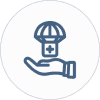
Personalised Treatment Plans
A treatment journey tailored to all your preferences and needs

Unparalleled Hospitality
Experience exceptional hospitality during your stay

Easy Medical Visa Approvals
Dedicated assistance for medical visa requirements
Plan your healthcare journey with Karetrip!
India’s Best Hospitals are Partnered With Karetrip
Access World-Class facilities from top Hospitals across India
Consult with India’s most experienced doctors
Experience premium care from India’s leading specialists

Dr. Sanjeev Mohanty
ENT Surgeon
31+ Years Of Experience

Dr. Santosh Shivawswamy
ENT & Head And Neck Surgeon
16+ Years Of Experience

Dr. Sharad Mohan
ENT Surgeon
27+ Years Of Experience
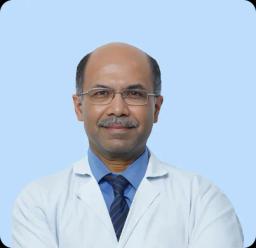
Dr. Uday Pol
ENT Surgeon
36+ Years Of Experience
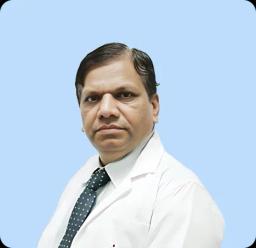
Dr. Sanjay Tulsiram Helale
ENT Surgeon
28+ Years Of Experience
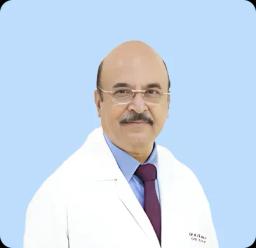
Dr. W.V.B.S Ramalingam
ENT Surgeon
37+ Years Of Experience
Cost Estimation
Learn about the expenses involved in the procedure and what factors affect them.

The cost of Rhinology surgery can vary depending on several factors, and here's a breakdown of the key influences:
-
Type of Procedure: The specific rhinology procedure being performed greatly influences the cost. Procedures range from diagnostic nasal endoscopy to complex sinus surgeries such as functional endoscopic sinus surgery (FESS), septoplasty, turbinate reduction, or nasal polypectomy. Each procedure has its own set of requirements and associated costs.
-
Surgeon's Expertise and Experience: Surgeons with advanced training, specialized expertise, and extensive experience in rhinology procedures typically command higher fees. Patients may opt for renowned surgeons known for their expertise in complex rhinology cases, which may come at a premium cost.
-
Geographic Location: The cost of healthcare services, including rhinology procedures, can vary significantly depending on the geographic location. Major urban areas or regions with a higher cost of living tend to have higher medical fees compared to rural areas.
-
Hospital or Surgical Facility Fees: The fees associated with the hospital or surgical facility where the procedure is performed contribute to the overall cost. Facilities offering state-of-the-art equipment, advanced technology, and specialized nursing care may have higher fees
The average cost of the Rhinology in India is around ₹ 45,000 to ₹ 70,000.
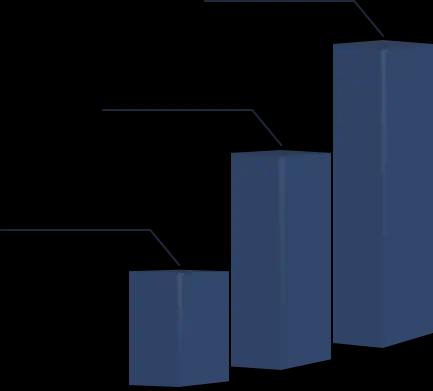
₹ 70,000
High Cost
₹ 57,500
Average Cost
₹ 45,000
Low Cost
The LIST of AVERAGE COST of the Rhinology across TOP 4 cities in India in Indian Rupee (INR) is as follows :
City
Lowest Cost
Average Cost
Highest Cost
Mumbai
₹ 45000
₹ 57500
₹ 70000
Delhi
₹ 45000
₹ 57500
₹ 70000
Hyderabad
₹ 45000
₹ 57500
₹ 70000
Chennai
₹ 45000
₹ 57500
₹ 70000
Commonly Asked Questions
What conditions does a rhinologist treat?
Rhinologists treat a wide range of nasal and sinus disorders, including chronic sinusitis, allergic rhinitis, nasal polyps, deviated septum, and nasal valve collapse.
How do I know if I need to see a rhinologist?
If you experience persistent nasal congestion, sinus pain, or recurrent sinus infections that do not respond to conventional treatments, it may be advisable to seek evaluation by a rhinologist.
Is rhinology surgery painful?
Rhinology surgery is typically performed under general anesthesia or local anesthesia with sedation, minimizing discomfort during the procedure. Post-operative pain is usually managed with pain medications prescribed by your surgeon.
What are the risks of rhinology surgery?
Risks of rhinology surgery may include bleeding, infection, nasal septal perforation, or recurrence of symptoms. Your surgeon will discuss these risks with you before the procedure.
How long does it take to recover from rhinology surgery?
Recovery time varies depending on the type of procedure performed and individual factors. Most patients can resume normal activities within a few days to a few weeks after surgery, with full recovery typically achieved within several weeks to months.

Do you still have a query?


"I had a successful surgery at Fortis Escorts Hospital, and it was all thanks to Karetrip's help in finding the right hospital for me. The entire process was smooth and stress-free, with Karetrip handling all the arrangements and answering any questions I had. The medical team at the hospital was outstanding, and the facilities were top-notch. I highly recommend Karetrip to anyone looking for a tension-free healthcare experience."
Read MoreFatima
Chattogram


"Thanks to Karetrip, I got connected with MAX Hospital in New Delhi. The team guided me through every step – from finding the right doctor to handling travel and visas. They made a daunting process feel like a breeze. The care I received at MAX Hospital was outstanding, and I can't thank Karetrip enough for making it possible. They truly put patients first and go the extra mile to ensure a smooth healthcare journey. I'm grateful beyond words!"
Read MoreHasan
Dhaka


"At first, I was unsure about having a medical procedure done in a foreign country. However, Karetrip's team at Indraprastha Apollo Hospital made me feel much better. The hospital was very clean, modern, and had everything they needed to help me. The staff were very kind and did everything they could to make me feel comfortable. I'm really happy with how my treatment turned out, and I appreciate Karetrip for making it easy and stress-free."
Read MoreImran
Sylhet
 Google Reviews4.9/5
Google Reviews4.9/5




I had a successful surgery at Fortis Escorts Hospital, and it was all thanks to Karetrip's help in finding the right hospital for me. The entire process was smooth and stress-free, with Karetrip handling all the arrangements and answering any questions I had. The medical team at the hospital was outstanding, and the facilities were top-notch. I highly recommend Karetrip to anyone looking for a tension-free healthcare experience.
Fatima
Chattogram
 Google Reviews4.9/5
Google Reviews4.9/5




